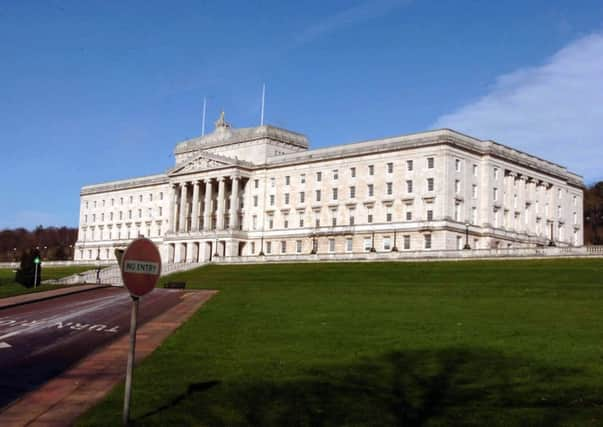Ben Lowry: Question about NI staying in customs union tests unionist limits to devolution


The Professor of Green Political Economy at Queen’s University asked (see link below) why it will be a problem if Northern Ireland stays in the customs union and single market but the rest of UK does not.
Why should an economic border and different regulations around trade make NI less British, or threaten the Union, he asked?
Advertisement
Hide AdAdvertisement
Hide AdDr Barry suggested that such a move might merely continue the process of a looser Union “which has been ongoing since devolution across the UK for decades”.
He cited existing differences in bank notes between NI and Great Britain and the fact there are different council and planning powers in England than in this Province.
He cited differences in the Scottish legal system from that of England, Wales and NI. He mentioned varying legislation on matters such as abortion and same-sex marriage.
“That is a continuation of economic and regulatory divergence but within a single unitary UK state,” he said.
Advertisement
Hide AdAdvertisement
Hide AdJohn Barry’s question is important. He comes at issues from an unusual perspective, as a councillor in a party, the Greens, which considers the environment to be the over-riding political issue (I believe that true ‘conservatives’, people who want to preserve the best of things, should also be environmentalists).
Professor Barry also was one of a number of signatories to the recent letter by so-called ‘civic unionists’ who originally hail from the Republic of Ireland (another was Rev Chris Hudson, the ex Catholic, nationalist, trade unionist who is now a non-subscribing Presbyterian).
Dr Barry’s question is also interesting because it is timely to debate the constitutional limits of diverging systems within the UK.
Jim Allister, for example, was concerned by a threat to the Union of devolving Corporation Tax to Stormont, a proposal that was supported by most other parties.
Advertisement
Hide AdAdvertisement
Hide AdBut while this a big subject, there is also a short answer to Dr Barry.
Devolving powers of significance to Stormont is one thing.
Devolving the powers to Stormont, but to be adminstered by another country/entity is another.
Such a transfer would not be one of tariffs and convergence policy to Northern Ireland, but to the EU.
The policy would be dictated by Brussels, and the nearest Northern Irish residents would get to a say over it would be via their neighbouring politicians in the Republic.
Advertisement
Hide AdAdvertisement
Hide AdThis is aside from the policing of the differences, which would be on UK soil but at the behest of, and to the satisfaction of, EU officials (perhaps even carried out by them).
Michel Barnier, the EU’s chief Brexit negotiator, confirmed that: “In ports and airports [in Northern Ireland] there will be controls.”
Contrast this to that articulated by the Irish deputy prime minister Simon Coveney in Belfast last year.
He said land border checks were not only unacceptable, but that divergence (between N.Ireland and the Republic) was unacceptable.
Advertisement
Hide AdAdvertisement
Hide AdYet Mr Barnier’s position paper tried to impose both those things (divergence and checks) at the frontiers between NI and GB.
Note also that no-one is saying that the latter, a border at the Irish Sea, might re-ignite violence.
Yet a host of distinguished figures have warned gravely of such violence if the land border is enforced, which could give an impression that the spectre of violence (let alone threat of it) pays dividends.
None of which is to deny the headache we face in Northern Ireland implementing Brexit.
Advertisement
Hide AdAdvertisement
Hide AdNot only are nationalists radicalised, but much of the non aligned political centre is too, and they will decide whether NI stays in the UK.
Meanwhile, the government faces defeat on its plan for the whole UK to leave the customs union. Only a dozen Tories need rebel.
Staying in the customs union will be absurd, because the UK cannot strike trade deals.
If there has to be such a major compromise then it would be better for the whole UK to stay the single market, which does cede limited sovereignty but solves the regulatory divergence issue and frees the UK to strike its own trade. It will ease much of the Irish border issue.
Advertisement
Hide AdAdvertisement
Hide AdBut it isn’t on the cards, because the EU insists free movement of people, which helped deliver Brexit and is unpopular across Europe, is a core part of the single market.
And Brexiteers would see it as a concession too far. But they have not accepted yet that last year’s general election changed things, and their purism could yet derail Brexit.
• Ben Lowry (@BenLowry1) is News Letter deputy editor